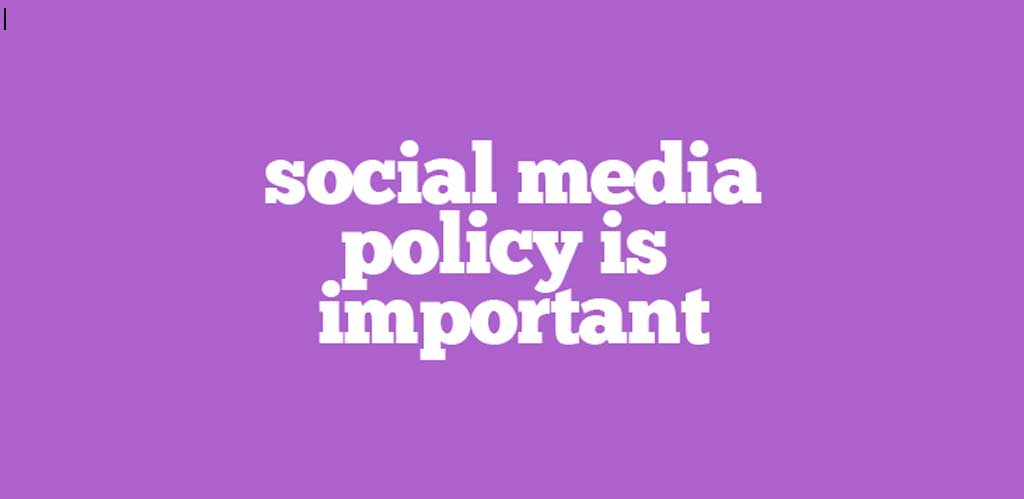What’s Your Social Media Policy?
 I am sure most people have heard a story or two about an employee that was fired over something they put on social media or a mistaken post that accidentally went to a company social media account instead of an employee’s personal account.
I am sure most people have heard a story or two about an employee that was fired over something they put on social media or a mistaken post that accidentally went to a company social media account instead of an employee’s personal account.
With the rise of social media and the importance of social media marketing for a company’s reputation and presence in the market, it is imperative that you have a social media policy to protect yourself, your employees and your brand. While these mistakes and mishaps cannot always be prevented, social media policies lay the groundwork to limit these happenings and mitigate the results after the incident occurs.
Let’s touch on the basics: first of all, what is a social media policy? A social media policy is a set of guidelines that determines how and when employees can use your brand on social media outlets and how they are to represent your brand. According to Margaret Rouse from WhatIs.com, “A social media policy (also called a social networking policy) is a corporate code of conduct that provides guidelines for employees who post content on the Internet either as part of their job or as a private person. 1”
While you cannot always control what outsiders say about your brand, products or services, you can most definitely have a say in how your brand is used from those inside your walls, so to speak. From a brand perspective, you should have very specific guidelines for your marketing, PR or social media staff in regards to what logos, photos and message points are safe to use across your branded social media channels. If possible, have posts double-checked by a manager to ensure consistency of messaging and the content’s alignment with your social media goals and company values.
Also, it is very important to have set guidelines regarding responses to negative comments or tweets as well as crisis management guidelines in case something happens that requires you to quickly post updates or information across your channels. Within the social media plan, it is helpful to include the specific chain of contact in case an incident occurs to be sure the most updated, accurate information is being shared on your public channels.
A social media policy also covers social media activity when employees are on their personal accounts. With the rise of digital information, especially in the case of public companies, your employees are a direct extension of your brand, especially if they make their employment known on their social media channels. While we would like to think that their personal account is purely personal, unless they clearly note that on their page, you could be liable for their words and actions. Your reputation is on the line if an employee posts something without thinking it through or says something negative about your brand or products. Some companies require employees to include a disclaimer on their channels that their comments do not reflect the opinions of their employer.
A great example of a social media policy comes from Coca-Cola Company, check it out here: https://www.coca-colacompany.com/stories/online-social-media-principles.
When it comes to social media, without clear, established guidelines, your brand is one post away from a major reputation crisis – it is definitely better to be more safe than sorry.
Source:
1 Rouse, M. (2014). Social Media Policy. TechTarget. Retrieved July 11, 2014 from https://searchcompliance.techtarget.com/definition/social-media-policy
Tags
Apparel business growth business operations Business Services Communication Compliance Content Creation Content Marketing CRM Customer Service Customer Support Custom Print Custom Solutions data e-commerce Ecommerce Email Email Marketing Solutions Google Graphic Design kpi Marketing Messages Marketing Strategies Mobile Applications Online Security Partner planning PPC Press Releases printing format Print Shop Project Management Sales SEO Shopify Small Business Social Media strategy tracking Web Design Website Management Wordpress Zoho Zoho Vault
